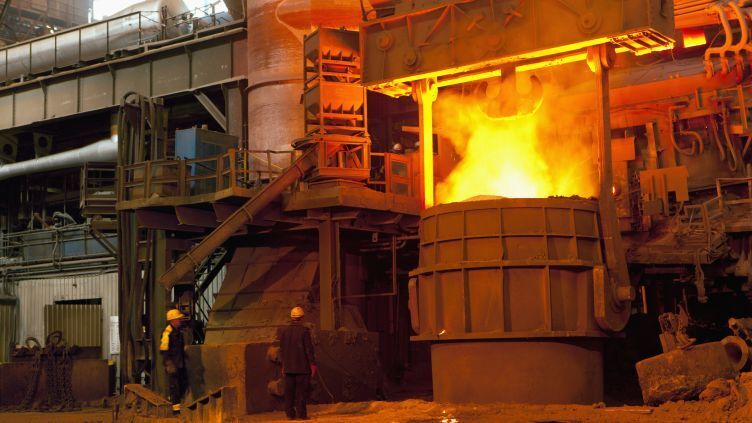By
Marwa Nassar
-
-
The UK Universities of Sheffield and Leeds have secured £1.26 million for their scientists to investigate ways of decarbonizing the steel industry – which is a high carbon process – by 2050 in line with the UK government target of net-zero carbon emissions.
Team will use new Energy Institute facilities to perform pilot scale experiments. According to figures from the World Steel Association, Every ton of steel manufactured currently creates 1.8 tons of carbon dioxide.
With the UK legally committed to be a net-zero emitter of greenhouse gases by 2050, the industry faces an uncertain future unless it ends its dependence on carbon.
An interdisciplinary team from the Energy Institute at the University of Sheffield, with colleagues at the University of Leeds, has won £1.26 million from the Center for Research into Energy Demand Solutions, which is funded by UK Research and Innovation, to develop approaches that blend technology and policy with the aim of eliminating the industry’s dependence on fossil fuels.
Comments on the research project
Bill Nimmo, Professor of Energy Engineering and Sustainability at the University of Sheffield, said: “This project will take a whole systems approach to look at the integration of low carbon technologies and bioenergy into the manufacture of steel, with the target of reducing this vital industry’s net CO2 emissions to zero.University of Sheffield researchers will provide expertise on the technical pathways for maturing decarbonization technologies, and use our new facilities to perform small pilot scale experiments. From there, we can understand which technologies can be scaled up and advise government and industry on how steel can be made in a more sustainable manner, with impact both in the UK and overseas.”
Professor William Gale, an energy expert at the University of Leeds and the project’s principal investigator, said: “The reality is the steel industry in the UK has to decarbonize, but this has to be done sensitively otherwise there is a risk the industry will relocate to where the rules on carbon are more lax. Our challenge is to bring about real change without eroding the wafer-thin margins on which the industry operates.”
“Steel is an important material so we can’t just stop manufacturing it. This project will bring together a range of experts from scientists and engineers involved in researching alternative methods of production or ways to recover it from scrap – to policy and business experts analyzing the policy initiatives and incentives needed for this change,” he added.
“Our research will investigate a range of emerging technologies and solutions. We will look at whether there is a way you can integrate a number of different approaches. We will delve into the costs and timescales and develop a very detailed, fully-costed ‘route map’ of technologies and policies which will enable industry to make this vital transformation without it being saddled with unrealistic costs,” he said.
Professor Nick Eyre, Director of the Center for Research into Energy Demands Solutions, said: “Decarbonizing the UK energy system is a major national challenge for the coming decades, nowhere more so than in major industrial processes. I am therefore delighted that colleagues from Leeds and Sheffield are joining CREDS to research steel industry decarbonization.”




اترك تعليقا